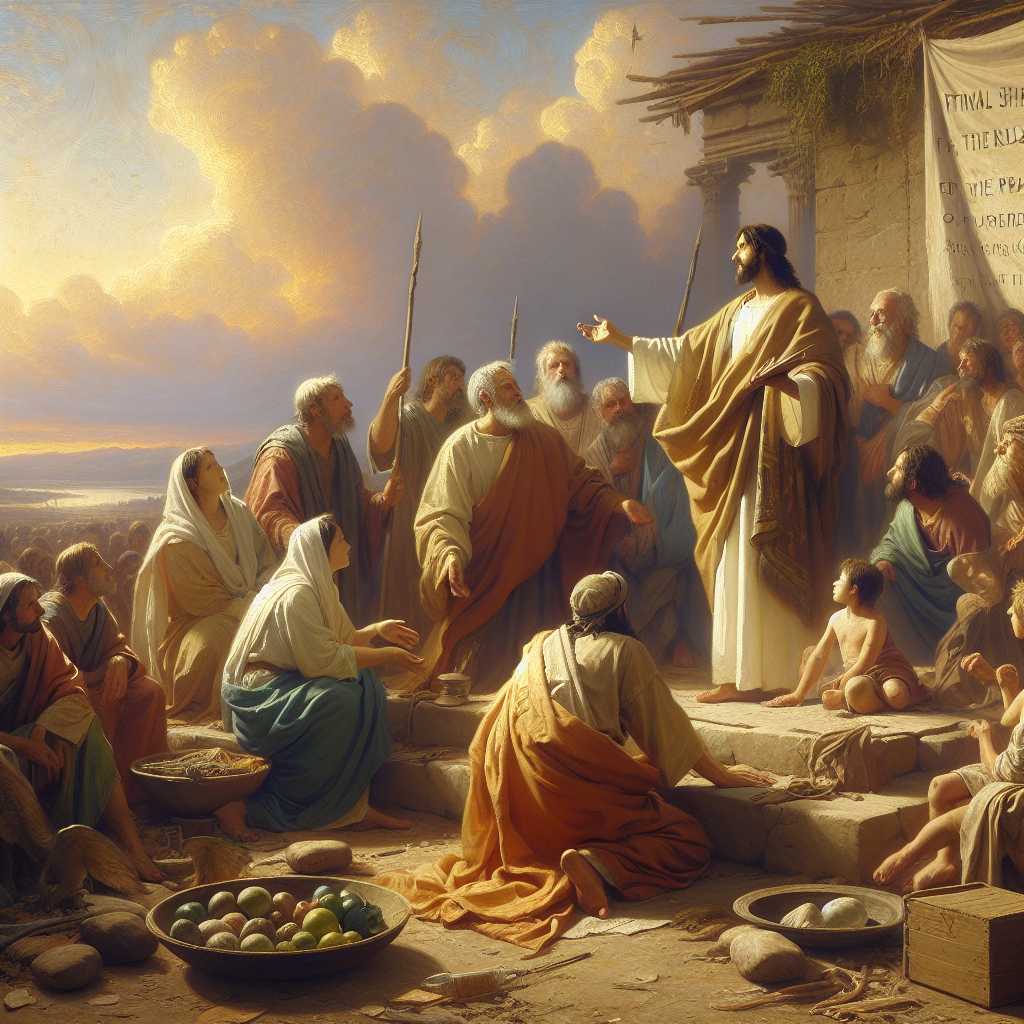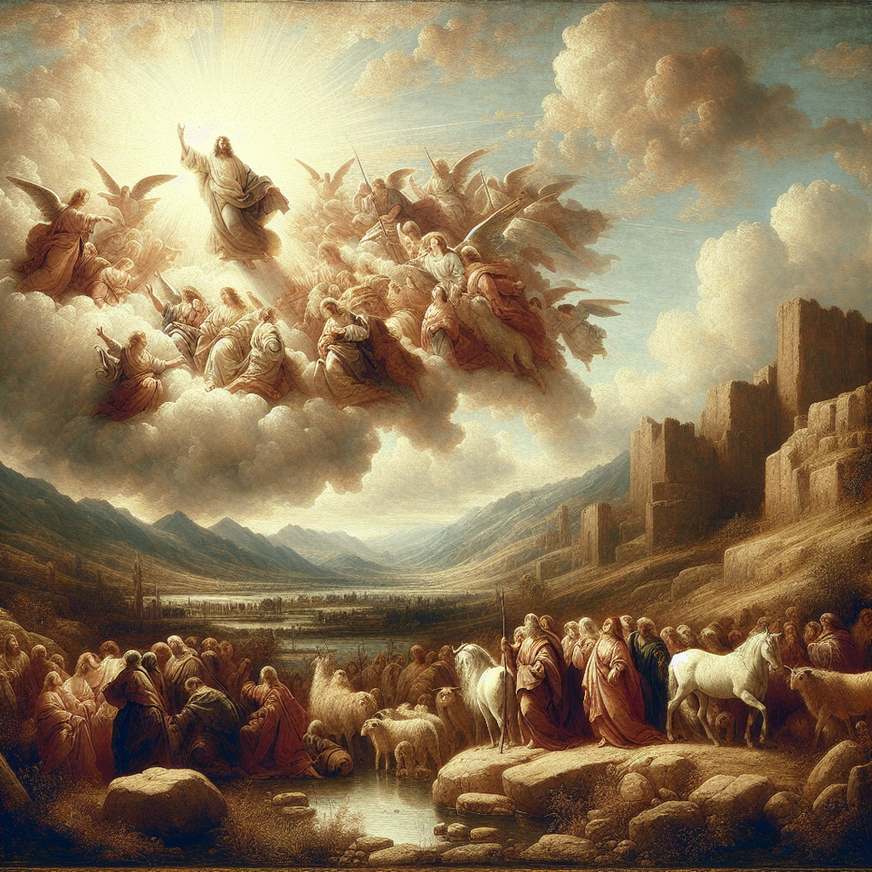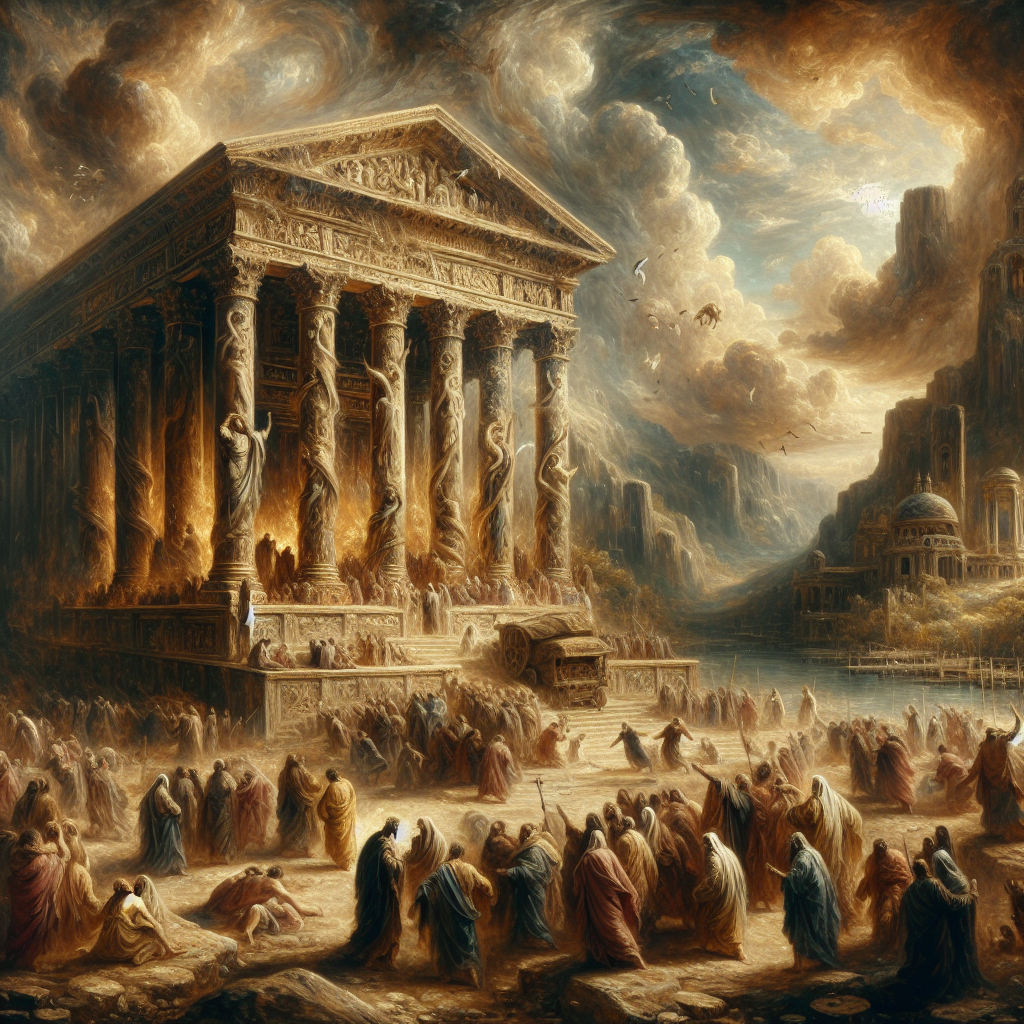
Understanding the Suffering and Glory of Psalm 22: A Guide to Faith and Praise
Explore the profound themes of suffering, trust, and redemption in Psalm 22, a prophetic psalm that echoes Jesus' cry on the cross. Discover how the psalmist's anguish and faith in God can inspire your own response to adversity, and how its vivid imagery foreshadows the crucifixion and ultimate triumph of Christ.

Isaiah 7-10: Unveiling the Promise of Immanuel and God's Redemption
Explore the prophetic chapters of Isaiah 7-10, where God offers King Ahaz a sign of redemption through the birth of Immanuel, a virgin-born child symbolizing God's presence. Delve into the historical context of the Syro-Ephraimite War, the cultural significance of signs and symbols, and the etymology of key terms like "Immanuel" and "virgin." Discover practical applications for trusting in God's promises, seeking guidance, and embracing the power of redemption.

Understanding Matthew 25:31-46: Themes, Context, and Practical Application
Matthew 25 highlights themes of final judgment, the Kingdom of God, and compassion through parables like the ten virgins, talents, and the sheep and goats. It emphasizes the importance of being prepared for Christ's return, using one's gifts wisely, and serving the marginalized as acts of faith. Written between AD 80-90, it reflects the early Christian community's identity amidst Roman rule and Jewish-Christian tensions. Key verses include Matthew 25:31, 25:40, and 25:21. Practically, it calls for compassionate living, supporting fellow believers, and reflecting God's love through service. Reflect on how these teachings influence your life and priorities.

Micah 5-7: Hope, Justice, and Divine Restoration
Micah chapters 5 to 7 present a profound message of hope, restoration, and divine justice. These chapters prophesy the birth of a ruler from Bethlehem, symbolizing God's enduring faithfulness and the promise of peace and deliverance for His people. The imagery of the remnant of Jacob as both gentle dew and a powerful lion illustrates the dual nature of God's people, who will be both peaceful and triumphant among nations. The text emphasizes themes of justice, mercy, and humility, urging believers to trust in God's sovereignty and remain faithful amidst adversity. This prophetic vision not only reflects the historical context of the Assyrian threat but also offers timeless lessons on God's protection and the transformative power of faith.

Matthew 24: Unraveling the Mysteries of the End Times
Delve into the prophetic discourse of Jesus on the Mount of Olives, where He predicts the destruction of the temple, false Christs, wars, famines, and the end of the age. Explore the historical and cultural context of Jesus' ministry, the significance of the abomination of desolation, and the importance of being prepared for His return. Reflect on the practical applications and reflection questions to deepen your understanding of this pivotal chapter.

God's Justice and Protection in Psalm 10
Psalm 10 is a powerful cry for God's justice and protection against the wicked, who seem to prosper despite their evil deeds. The psalmist expresses trust in God's ability to see and respond to the troubles of the afflicted, emphasizing God's role as a helper and protector of the weak and fatherless. Key themes include God's justice and protection, faith in God's providence, and the nature of evil. This psalm is part of the Psalter, written primarily by King David, and reflects the cultural expectation of ancient Israelite society that God would intervene on behalf of the righteous.